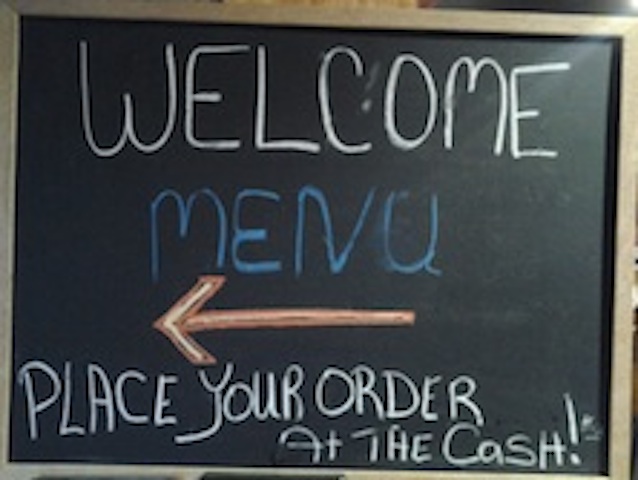DCHP-2
cash < Canadian French caisse DCHP-2 (April 2016)
n. — especially Montreal, Eastern Ontario
a place in a store where purchases are paid for.
Type: 3. Semantic Change — Cash 'cash register' was first noted in Gage-3 (from 1983). It is the preferred term among Anglophone Montrealers, reported by 77%, as compared to 13% reporting cashier. In English-speaking Quebec, 60% report cash (Boberg 2010: 171-72). The high use in French Canada is a result of the phonetic similarity with the French equivalent caisse. Cash is also the most frequent term in eastern Ontario (34%), where it is only slightly more popular than cashier (28% ).
Although English speakers in Montreal are generally considered as relatively isolated within mainland Canadian English (see, e.g., Boberg 2005: 36), one can see that the border regions also use the Montreal-dominant form cash. The term also appears outside of the area (see Image 1 from Vancouver), though at lower rates. On the whole, the rest of Canada favours cashier (for regions west of Quebec) or check-out (for regions east of Quebec) (Boberg 2010: 178). Cash for 'cash register' is likely a lexical transfer from Canadian French into Canadian English in Quebec, which is in non-French areas reinforced as a shortening of cash register to cash.
Alternatively, a semantic change of cash from 'physical banknotes and coins' to 'till' - the place where the banknotes and coins are stored - is another explanation, though a less likely one.
See also Gage-3, s.v. "cash" (3), which is marked "Informal".- It is likely that this national minority term is currently (in 2016) spreading, due to the conciseness of the term (e.g. principle of economy in linguistics).
References:
Images:

Image 1: Sign at a Vancouver eatery. Photo: S. Dollinger